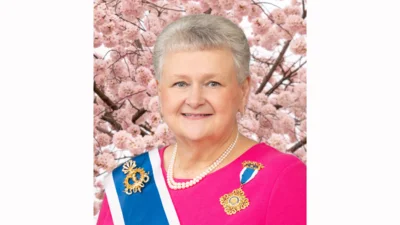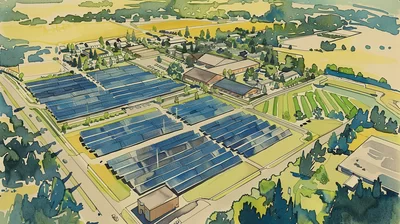Think of one of the more engaging speakers you’ve ever seen in person–maybe at a work conference or a church service. Now imagine that speaker delivering the same speech but doing it through your computer. Do you think it would have the same impact it had on you when you heard it in person? Would it still hold your attention when it’s competing with your kids arguing, the dog running around behind you, and even the proximity of the couch? It’s possible, but unlikely.
Now imagine that you’re 14 years old. Could a lesson normally taught in a classroom still hold your attention with the many distractions of home? Again, it’s possible, but unlikely. Lesson plans that are creative and engaging in-person may not translate well to an online setting. Unfortunately, due to COVID-19, a lot of teachers were forced to pivot to teaching existing curriculum online and trying to keep students engaged. This turned out to be far more difficult than most people might’ve previously imagined.
Respected educators over the past year have bemoaned that online education isn’t a valid option because they couldn’t get students to pay attention. Critics say children who were forced to learn online during the pandemic didn’t really learn, thus all online learning is deficient. I couldn’t disagree more.
There’s a vast difference between choosing to school online full-time and being forced to do so because of a pandemic. As a teacher at a public full-time online school, I know that the model works best when families choose this option. Online school is most effective for students when one person at home acts as a learning coach, working together with teachers to keep students on task when not online. There’s also a difference between a school created specifically to educate students online and an online program which was hastily stitched together by a brick-and-mortar school as a last resort.
My response to critics of full-time online schooling is this – there’s a vast difference between what many students experienced during the pandemic with online learning, and what we do every day in public full-time online schools across the country. You can’t judge one by the other. Don’t render a verdict about public online schools (where families have chosen that option and their schools are designed for it) based on your experience with remote learning through public schools because of the pandemic. Make sure you’re comparing apples to apples before racing to a conclusion.
With summer winding down, school districts and parents across the country are trying to figure out what the 2021-2022 school year will look like. For various reasons, parents may be displeased with what their local public school district decides to do when it comes to learning mode, masks, and social distancing. For some of those parents, public full-time online schools may be just the solution that they’re looking for.
I would never argue that online learning is the best option for every single student. I will, however, always argue that it’s a successful method of learning and the best option for many students. I‘ve had numerous parents tell me that full-time online school saved their child, and they don’t know what they would’ve done if that option hadn’t been there for their family.
Now that we’re seeing a close to the crisis and many students are returning to physical classrooms, let’s learn to appreciate that there are a variety of ways students can receive their education! Every student is different, and the full-time online model is, for hundreds of thousands of students, the best way to school. Many schools that are specifically designed to deliver online curriculum have cracked the code of getting that lesson to engage that 14-year-old despite the many distractions of home. It’s vital to our education system that now, as the pandemic is waning, and we’re looking at the various successes or failures of schooling online through the crisis, we recognize the beauty of having a variety of options for every student.
Julie Keaton is a Business & Technology Teacher at Ohio Virtual Academy (OHVA) high school (a statewide public full-time online school). She’s also an active advocate for school choice and public eSchools with the Ohio eSchool Coalition.







